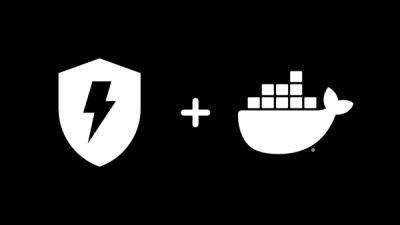Email Scribe
A feature-rich, embeddable email editor (<250kb gzipped), designed for creating modular, email-safe designs. This semi-WYSIWYG editor allows you to build emails using pre-existing template modules, ensuring compatibility across various email clients.

Key Features
- Import Email Templates: Parse and import email templates (especially StampReady templates) as modular, editable components.

-
Embeddable SPA: Completely isolated CSS to prevent conflicts with parent application styles that builds to a single js+css.
-
Export and Import: Save your work as JSON, import previously saved designs, and save/load from server.
-
Download Safe HTML: Generate and download sanitized, email-safe HTML.
-
Responsive Preview: View your design across multiple device sizes (mobile, tablet, PC).
-
Theme Support: Light/Dark mode that can sync with the parent application (defaults to 'theme-dark' class on body).
-
Mock Express Server: Includes a mock server for image upload (with resizing), template serving, and preset management.
-
Bulk Settings: Change overlapping/merged settings for multiple blocks simultaneously.
-
Server-Side Rendering Support: Enables dynamic content injection via server-side processing.
- Converts editable fields to placeholders (e.g.,
%field_name%)
- Wraps blocks in uniquely identified templates
- Facilitates iterative data population on the server
Using as a React Component
Info: This is the client-side aspect of the editor. At the very least, you'll need to implement a server that serves templates and handles image uploads (A fully functional example server is included in git repo of the project, check next section for more details).
import { EmailScribe, PresetMode } from 'email-scribe';
import { Save } from 'lucide-react';
function App() {
return (
<EmailScribe
apiUrl={import.meta.env.VITE_API_URL}
basePath={import.meta.env.VITE_BASE_PATH}
templatesToFetch={import.meta.env.VITE_TEMPLATE_ID.split(',')}
ctaOne={{
label: 'Download Preset Json',
icon: <Save />,
action: (subject, id, plainText, html, preset) => {
stringtoJsonDownload(preset, 'preset.json');
},
hidden: false,
}}
ctaTwo={{ hidden: true }}
presetMode={PresetMode.Default}
preloadPreset={JSON.stringify(presetTest)}
/>
);
}
function stringtoJsonDownload(data: string, filename: string) {
const a = document.createElement('a');
a.href = URL.createObjectURL(new Blob([data], { type: 'application/json' }));
a.download = filename;
a.click();
}
Props
| apiUrl | API calls start with this url | string | No |
| basePath | API calls become: apiUrl/basePath/route | string | No |
| templatesToFetch | Array of template names to fetch (purchased by you) | string[] | No |
| iconComponent | Custom icon component. Can be React Node. | ReactNode | Yes |
| title | Title for the editor | string | Yes |
| preloadPreset | Preset to load initially | string | Yes |
| presetMode | Mode for preset handling | PresetMode | Yes |
| ctaOne | Configuration for the first CTA button | CTAProps | Yes |
| ctaTwo | Configuration for the second CTA button | CTAProps | Yes |
CTAProps
| label | Label for the CTA button | string | Yes |
| icon | Icon component for the CTA button | ReactNode | Yes |
| action | Function to execute when CTA button is clicked | (subject: string, id: string, plainText: string, html: string, preset: string) => void | Yes |
| hidden | Whether to hide the CTA button | boolean | Yes |
Action parameters can be used to extract all useful data from the editor to be used in your application.
PresetMode
An enum with the following values:
PresetMode.DefaultPresetMode.LocalOnlyPresetMode.RemoteOnly
API and Server Requirements
The application comes with an Express server that handles image uploads, template serving, and preset management. For production use, you'll need to implement similar endpoints:
/upload: POST endpoint for image uploads (with optional resizing)/templates: GET endpoint to serve email templates/preset: GET, POST, DELETE endpoints for managing presets (can be ignored if not needed)/presets: GET endpoint to list all presets (same as above)
Refer to the server directory and server.ts for detailed implementation. Note the .env.example file for defaults.
Using as a Standalone Application/Static build
Setup
Note: All bun commands can be replaced with your preferred package manager/runtime environment
- Clone the repo
- Run
bun i in root as well as in server directory.
- Extract your templates in
server/Templates folder.
- The folder structure should be like
server/Templates/xyzTemplate/ and index.html should be inside it alongside any resources embedded into templates placed relatively.
- Suggested/Tested template: Matah Responsive Email Set.
- Copy .env.example to .env and adjust as needed.
Development
- First cd into server and run
bun run serve to start the server (for image uploads, template serving, and preset management)
- Then in a new terminal in root directory, run
bun run dev
Production
bun run build:static followed by bun run serve in server directory (or use your preferred compatible server implementation).- To embed this SPA in your project, include the compiled JS and CSS files in your projects.
Project Structure
The project is a React SPA (Single Page Application) that uses Tanstack Query for data fetching, Zustand for state management, Radix components for UI, Handlebars for templating alognside other minor packages for various tasks.

License
This project is licensed under the MIT License - see the LICENSE file for details.






